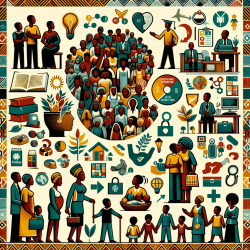Understanding the Impact of Adverse Childhood Experiences on Financial Security
Adverse Childhood Experiences (ACEs) have long been recognized for their detrimental effects on physical and mental health. However, recent research has expanded this understanding to include financial security in adulthood. The study titled "The Link Between Adverse Childhood Experiences and Financial Security in Adulthood" provides compelling evidence that childhood trauma can lead to financial stress later in life.
Key Findings and Implications for Practitioners
The research highlights that individuals who report higher levels of ACEs are more likely to experience financial insecurity, such as difficulties with food and housing expenses. This finding underscores the importance of integrating trauma-informed practices into financial education and therapy.
For practitioners, this means:
- Recognizing the signs of ACEs and their potential impact on financial behaviors.
- Incorporating resilience-building strategies into educational and therapeutic settings.
- Collaborating with interdisciplinary teams to address the multifaceted needs of students and clients.
Strategies for Building Resilience
Building resilience is crucial in mitigating the long-term effects of ACEs. Here are some strategies practitioners can implement:
- Social-Emotional Learning (SEL): Integrate SEL into curricula to help students develop coping mechanisms and emotional regulation skills.
- Financial Literacy Programs: Tailor financial education to include discussions on the emotional aspects of money management.
- Collaborative Efforts: Work with social workers, psychologists, and educators to create a supportive network for students and clients.
Encouraging Further Research
The study opens avenues for further research into the relationship between ACEs and financial outcomes. Practitioners are encouraged to delve deeper into this topic to develop more effective interventions and support systems.
To read the original research paper, please follow this link: The Link Between Adverse Childhood Experiences and Financial Security in Adulthood.










